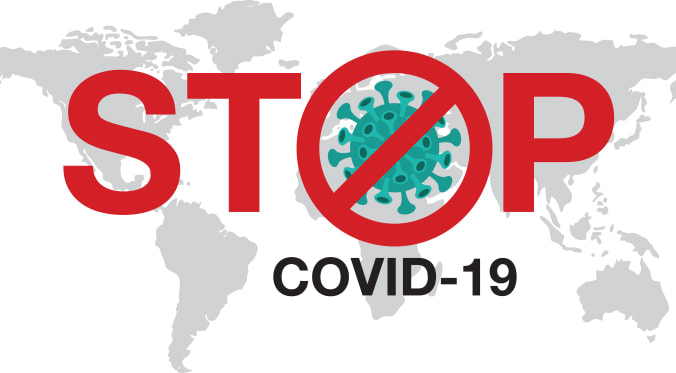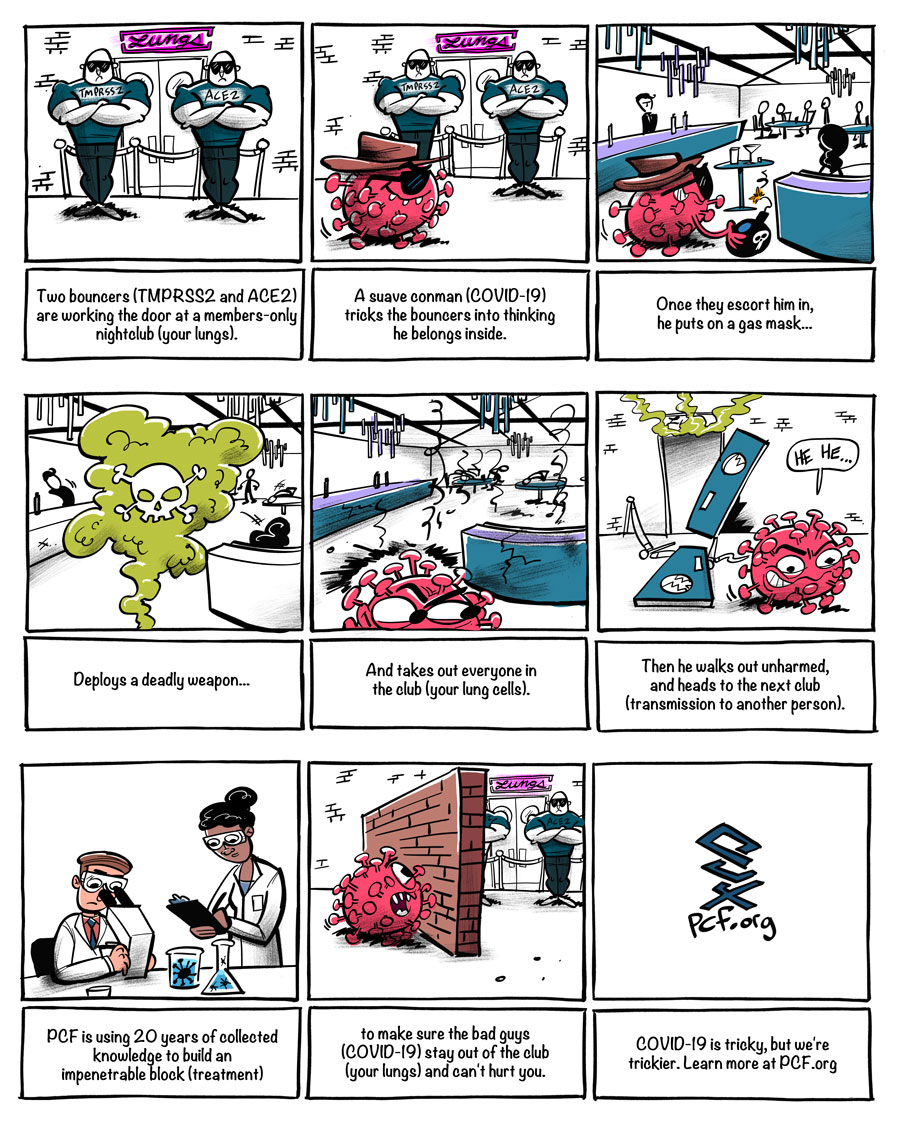Understanding the Relationship Between TMPRSS2 and COVID-19

You may have heard about an unfamiliar sounding thing called TMPRSS2 lately either from our posts or in the general zeitgeist of COVID-19 news. We understand the knee-jerk reaction to disregard things that aren’t familiar, but understanding the relationship between TMPRSS2, ACE2 (another protein), and COVID-19 is important, exciting, and not too difficult when broken down.
Here is your definitive guide to the relationship between TMPRSS2 and COVID-19:
Put simply, TMPRSS2 is like a door handle that lets COVID-19 into your lungs. PCF is actively working on clinical trials for two different classes of anti-COVID-19 drugs: one will make the door handles fall off, and one will make the door handles impossible to turn. Either way, the outcome is the same: COVID-19 will no longer be able to get into the lungs and this will stop COVID-19 from turning deadly.
Sounds great right? So what are we doing about it?
Over the last 20 years, PCF has funded millions of dollars of research into TMPRSS2 and prostate cancer; thanks to this foundational research, we know TMPRSS2 could potentially be a drug target for COVID-19. PCF’s Prostate Cancer Research Enterprise is applying our body of knowledge about TMPRSS2 to the solve the COVID-19 problem.
Thus far, we have invested over $5 million in the study of TMPRSS2. Without this foundational work, we wouldn’t know what we know today – and we wouldn’t be nearly as close to a solution. Prior to this, PCF had funded work on TMPRSS2 at UCLA, the University of Minnesota, and the University of Michigan. PCF lead investigators in TMPRSS2 R&D from 1999 to the present include: Arul Chinnaiyan, Peter Nelson, Leroy Hood, Matt Rettig, and Charles Ryan.
PCF has now organized and funded a multi-disciplinary research community to tackle this problem, including over 400 pulmonologists, cancer researchers, infections disease experts, and experts in critical care. TMPRSS2 may also play a role in African American disparities, as well as gender disparities, and this is also an active area of research for the Prostate Cancer Foundation.
For more information visit our COVID-19 resources page.











